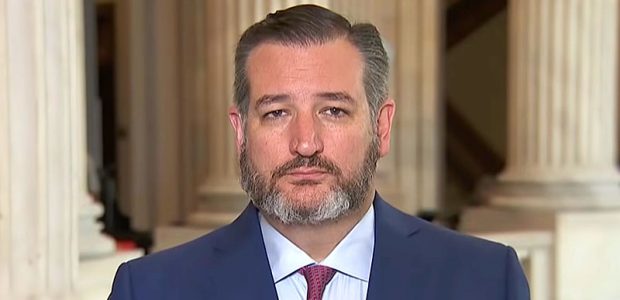


The Senate is about to upend the accomplishments of Speaker Johnson in order to get the House to pass President Trump’s Big Beautiful Bill.
They plan to rewrite the bill because enough of them simply can’t support the bill in its current state.
This includes Ted Cruz, who says the rewrite of the bill will change it “significantly”.
Here’s much more on this from DC Examiner:
Senate Republicans are vowing a major rewrite of President Donald Trump’s “one big, beautiful bill” despite House leadership’s pleas not to undo the carefully crafted bill.
House and Senate leaders are broadly aligned on the tax bill and have been meeting regularly to avoid points of conflict. But Senate Republicans made clear the compromise, a product of frenzied last-minute negotiations, must be negotiated again after it passed the House by a single vote on Thursday.
Committee leaders want to make their imprint on the legislation in a series of markup hearings, while the infighting over the price tag of the bill, which nearly paralyzed the House, will now be litigated in the Senate.
“No, of course not,” Sen. Ted Cruz (R-TX), the chairman of the Commerce Committee, said Thursday when asked if he supported the bill. “The Senate will change it significantly.”
In some ways, Senate Majority Leader John Thune (R-SD) will inherit the same headaches that plagued Speaker Mike Johnson (R-LA) for weeks. Both have a three-seat majority, lending little margin for error despite an ideological gulf between fiscal hawks and a bloc of centrists.
Sen. Ron Johnson (R-WI), one of those hawks, suggested the Freedom Caucus had failed despite extracting $1.5 trillion in spending cuts. He promised to oppose the bill unless it committed to hundreds of billions in additional offsets.
“It’s a lot easier to pressure House members than it is us; that’s just a basic fact,” Johnson said.
At the same time, Senate Republicans are more averse to Medicaid reforms passed in the House. Sen. Josh Hawley (R-MO), among others, is taking issue with changes to a provider tax that helps states finance Medicaid programs.
“If you fool around with that provider tax in my state, you really risk getting to benefit cuts there,” Hawley said.
Senate Republicans seem open to the higher cap on the state and local tax deduction, a key demand of blue-state House members who ensured the $10,000 cap was lifted to $40,000.
One of Johnson’s steepest concessions to fiscal hawks, an accelerated rollback of Biden-era green energy tax credits, is expected to face Senate scrutiny, given that many red states benefit from them.
“I think that even if we’re going to revise them, we’ve got to make sure that businesses who believe the government was setting this as a priority don’t have a lot of stranded costs,” Sen. Thom Tillis (R-NC) told reporters.
Some changes to the House bill were expected, thanks to the strict rules of reconciliation, a budget process that allows Republicans to sidestep the filibuster.
Sen. John Boozman (R-AK), the Agriculture chairman, said one of the first steps toward passage is running his committee’s language by the parliamentarian, a nonpartisan arbiter of Senate rules.
“We don’t know,” Boozman said of what will be permitted. “We’ll be checking with the parliamentarian to see if any of the things that they’ve done violate the Byrd Rule. And then that doesn’t necessarily mean that we’ll do them all, but we’ll know what’s possible and what’s not.”
He also noted concern from some Republican members over changes to food stamps that shift the cost burden onto states.
Other points of friction include the sale of spectrum licenses, with defense hawks warning that the House legislation does not adequately protect the Pentagon’s most sensitive radio frequencies from being sold to the private sector.
“I do not believe the votes are here in the Senate unless they make that modification,” said Sen. Mike Rounds (R-SD), a member of the Armed Services Committee. “I’m convinced we’ll get to ‘yes’ on it, but it will require fixes in the spectrum portion of it.”
Hawley separately indicated his interest in a higher child tax credit than the $2,500 currently contemplated in the bill.
“Anything higher would be good,” Hawley said.
He also revealed that Trump again lobbied for the so-called carried interest loophole to be closed in a Wednesday evening phone call, though that change is unlikely.
Senate leaders were reluctant to put a date on when they would pass their version of the megabill, but have set Treasury Secretary Scott Bessent’s requested date of July 4 as an aspirational goal.
“Yet to be determined,” Thune told the Washington Examiner when asked about a Senate timeline.
